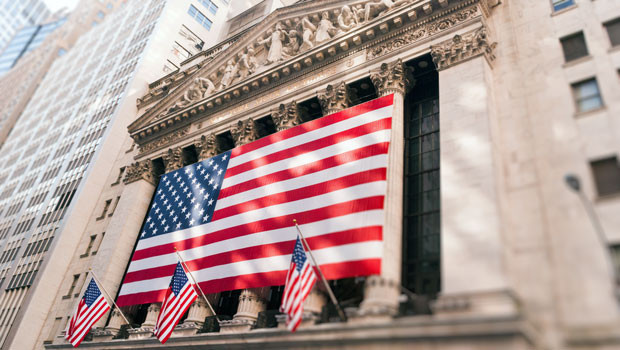
Source: Sharecast
At the close, the Dow Jones Industrial Average was down just 0.02% at 44,484.42, while the S&P 500 advanced 0.47% to 6,227.42 and the Nasdaq Composite saw out the session 0.94% firmer at 20,393.13.
The Dow closed 10.52 points lower on Wednesday, doing little to impact gains recorded in the previous session despite Federal Reserve chairman Jerome Powell revealing that the central bank would have already lowered interest rates were it not for uncertainty created by Donald Trump's so-called "Liberation Day" tariffs.
Trump's tax-and-spending megabill was given the green light by the US Senate on Tuesday, with a final vote of 51-50 after vice president JD Vance cast a tie-breaking vote due to Republican senators Thom Tillis, Susan Collins, and Rand Paul joining Democrats in voting against it. The measure has now returned to the House for a vote, but still faces a somewhat uncertain future due to several Republican holdouts over objections to recent amendments.
Billionaire Tesla CEO and ex-Department of Government Efficiency head Elon Musk also voiced his disapproval of the bill, stating that those who campaigned on cutting spending but then backed the bill "should hang their heads in shame". He also said that they "will lose their primary next year if it is the last thing I do on this Earth".
Wednesday's primary focus was news that private sector employment in the US unexpectedly fell in June, according to ADP, with employment declining by 33,000 from May, versus expectations for a 100,000 increase. Meanwhile, May's gain was downwardly revised to 29,000 from 37,000.
Small businesses with fewer than 50 employees shed 47,000 jobs, while medium businesses with between 50 and 499 employees shed 15,000, and large businesses with more than 500 employees added 30,000 jobs. The service sector lost 66,000 jobs, while the goods-producing sector saw a gain of 32,000. The data also showed that year-on-year pay growth for job-stayers was little changed for June at 4.4%, compared to 4.5% in May. Pay growth for job-changers was 6.8%, down from 7% a month earlier.
Elsewhere on the macro front, US mortgage applications rose 2.7% in the week ended 27 June, according to the Mortgage Bankers Association, extending the previous week's 1.1% drop. Applications to purchase a home were broadly unchanged, while applications to refinance a mortgage surged by 7%.
On another note, US-based employers announced 93,816 job cuts in May, according to Challenger, Gray and Christmas, the lowest reading in four months. The services sector cut the 22,492 jobs in May, the highest monthly total for the industry since May 2020. DOGE remained the leading reason for job cut announcements in 2025, cited in 284,044 planned layoffs so far this year, including direct reductions to the Federal workforce and contractors.
"Tariffs, funding cuts, consumer spending, and overall economic pessimism are putting intense pressure on companies' workforces. Companies are spending less, slowing hiring, and sending layoff notices," said Andrew Challenger.
Stocks also got a boost after Donald Trump announced a US-Vietnam trade deal, which includes a 20% tariff on imports from Vietnam.
Reporting by Iain Gilbert at Sharecast.com